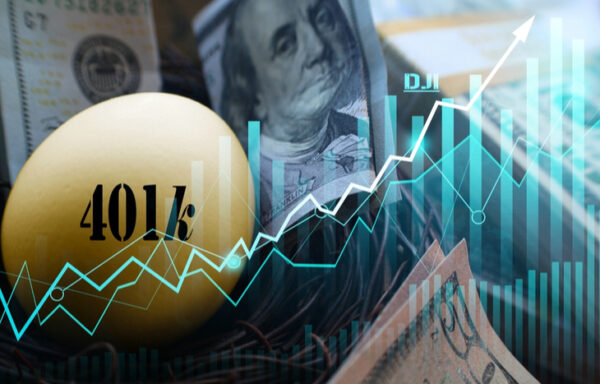What the Election Means for Your Portfolio
November 3 is Election Day in the United States. What could that mean for the markets?
You’re not supposed to fight the Fed, and the Fed is expected to keep interest rates low. However, there are a lot of forces pushing on this market, and I expect stocks to be lower in 2021.
Let’s take a look at some different scenarios and how the market might react…
1. Chaos: One or both candidates declare victory while both refuse to concede. Results take weeks to become official.
I think this is the most likely outcome, and it is what the market already expects. The natural assumption is that the markets would be in free fall.
But a chaotic result is very likely priced into the market. Right now, the only thing the market seems to care about is low interest rates.
Should this scenario happen, I don’t expect the market to stop grinding its way higher. Perhaps there would be some sharp moves here and there, maybe a fake head lower or two…
If President Trump loses and refuses to vacate his office in 2021 (which I think is unlikely), the U.S. will face a real constitutional crisis, which would likely lead to violence in the streets. It’s hard to imagine stocks going up under that scenario.
2. President Trump is reelected.
The market is up 52% since President Trump’s inauguration. That’s the fifth-best market performance in the first 46 months of a presidency going back to Herbert Hoover.
The market clearly likes what’s been going on, as it has gone nearly straight up except for a pause between October 2018 and June 2019 (and, of course, when the pandemic began).
I’d expect the market to initially shoot higher, especially if the Democrats were to take control of the Senate. The market likes gridlock – the less politicians can do, the better.
If Republicans hang on to the Senate, then the status quo is maintained and the market will probably continue its upward path.
But quickly after, I’d expect a “sell the news” reaction. The market tends to do the opposite of what most people think, and most people think a Trump reelection will be positive for the market. So look for a quick sell-off after the Trump reelection rally.
Going forward, Senate Republicans have shown an unwillingness to sink the country further into debt with a giant stimulus package (though that’s kind of like saying they refuse to add water to the pool when it’s already overflowing).
Despite a rebound from the worst quarter in history, the economy is still terrible. Ten million people file continuous unemployment claims each week. Additionally, nearly 1 million new claims are filed each week.
Without a large stimulus, it’s hard to imagine the economy regaining its legs anytime soon since a vaccine won’t be available to the masses until spring at the absolute earliest. That realization should lead to lower stock prices in 2021.
3. Joe Biden wins the presidency.
Conventional thinking would suggest that because Biden proposes raising corporate taxes, his presidency would be bad for the market. However, as I explained, the market usually zigs when everyone expects it to zag.
Look for a strong spike in the market on a Biden win. Wall Street is backing the former vice president, contributing five times more to Biden’s campaign than to Trump’s. After an initial surge, a “sell the news” reaction is still likely.
There’s a better chance of a large stimulus package passing if Biden wins. Additionally, U.S. trade policy would likely become more moderate. However, Biden has proposed increasing capital gains taxes to ordinary income levels.
That policy would probably not take effect until at least 2022. But I would expect a lot of profit taking at the lower tax rate prior to the higher one being implemented. That could lead to a sell-off in 2021.
Regardless, even with a big stimulus package, the economy doesn’t turn around on a dime (or a few trillion dollars). It takes months for the dollars to make their way to businesses, which then have to go through the hiring process.
To recap…
Immediately after the election, I expect stock prices to be higher – perhaps significantly – since many companies will be reporting earnings around that time and results could be better than expected. That will be followed by a “sell the news” reaction.
But I suspect 2021 could be a difficult year in the markets no matter who wins the election…
Valuations are sky-high. The current price-to-earnings (P/E) ratio of the S&P 500 is 35, versus a historical average of 15. The market is near all-time highs despite the destruction in earnings recently.
On a forward 12-month basis, the market is trading at 22 times earnings. Other than a spike earlier this year to 23, that’s the highest forward P/E since the dot-com boom.
Lofty valuations combined with a difficult economy and the potential for not enough stimulus or higher taxes are setting up for a potentially tough 2021 in the markets…
Take advantage of any quick spikes over the next few weeks but be ready to play defense shortly after.
About Marc Lichtenfeld
Marc Lichtenfeld is the Chief Income Strategist of Investment U’s publisher, The Oxford Club. He has more than three decades of experience in the market and a dedicated following of more than 500,000 investors.
After getting his start on the trading desk at Carlin Equities, he moved over to Avalon Research Group as a senior analyst. Over the years, Marc’s commentary has appeared in The Wall Street Journal, Barron’s and U.S. News & World Report, among other outlets. Prior to joining The Oxford Club, he was a senior columnist at Jim Cramer’s TheStreet. Today, he is a sought-after media guest who has appeared on CNBC, Fox Business and Yahoo Finance.
Marc shares his financial advice via The Oxford Club’s free daily e-letter called Wealthy Retirement and a monthly, income-focused newsletter called The Oxford Income Letter. He also runs four subscription-based trading services: Technical Pattern Profits, Penny Options Trader, Oxford Bond Advantage and Predictive Profits.
His first book, Get Rich with Dividends: A Proven System for Earning Double-Digit Returns, achieved bestseller status shortly after its release in 2012, and the second edition was named the 2018 Book of the Year by the Institute for Financial Literacy. It has been published in four languages. In early 2018, Marc released his second book, You Don’t Have to Drive an Uber in Retirement: How to Maintain Your Lifestyle without Getting a Job or Cutting Corners, which hit No. 1 on Amazon’s bestseller list. It was named the 2019 Book of the Year by the Institute for Financial Literacy.






